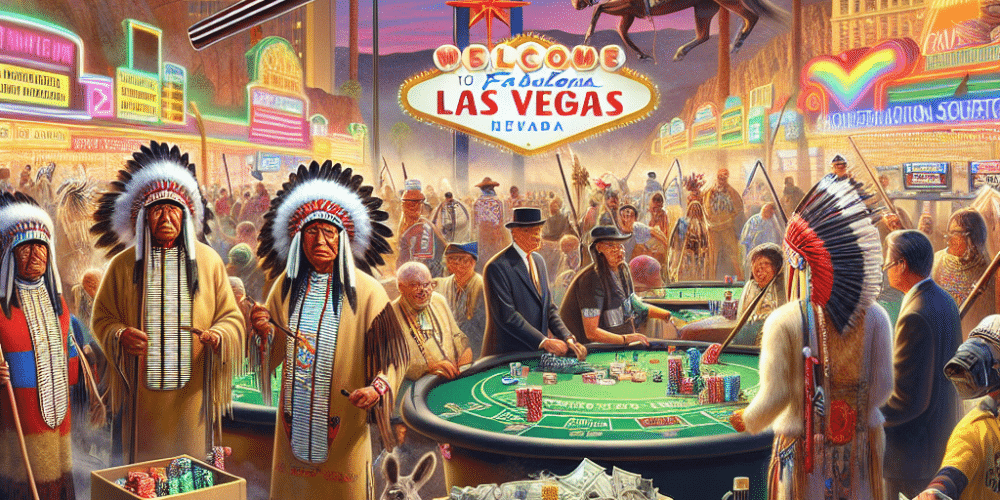In a series of significant financial contributions, California Attorney General Rob Bonta received over $100,000 from Native American tribes operating casinos. This influx of campaign funds occurred between late 2023 and mid-2024, coinciding with a pivotal moment when Bonta’s office declared daily fantasy sports (DFS) contests illegal under California law.
The financial support from the tribes aligns with their long-standing opposition to online fantasy sports platforms like DraftKings and FanDuel. These tribes argue that such platforms directly compete with their casino operations, offering what they claim is unregulated gambling masked as games of skill.
In an official statement released in 2025, Bonta classified fantasy sports platforms as a “modern type” of sports betting, which is prohibited by California law. This determination reflected the interests of the tribal entities, who have consistently sought to limit the expansion of online competitors.
Despite the apparent alignment of interests, Bonta’s office has denied any conflict of interest. A spokesperson emphasized that while contributions from the fantasy sports industry were refused during the investigation, there was no comparable reason to decline funds from the tribes, as they were not subjects of the probe. The campaign maintained that the tribes merely “shared their view” on an issue of public concern, as reported by Politico.
The timing of these contributions has raised ethical questions, especially given the tribes’ history of lobbying state officials to take action against fantasy sports platforms. Tribal gaming groups argue that these platforms divert billions of dollars in wagers from the regulated casino industry. Following Bonta’s ruling, tribal leaders praised the decision and called for immediate enforcement measures to shut down fantasy sports operations within the state.
The ongoing battle over daily fantasy sports highlights deeper divisions within California’s gambling landscape. Under state compacts, tribal casinos hold exclusive rights to conduct most forms of gaming, and they regard DFS platforms as direct threats to their market dominance. Meanwhile, representatives of companies like DraftKings and FanDuel assert that fantasy sports require skill and should not be categorized under traditional gambling laws.
Bonta’s stance is consistent with previous measures against unregulated gambling formats such as sweepstakes and prediction markets. In recent discussions, he underscored his office’s obligation to engage with gambling issues when prompted, describing it as a legal duty rather than a discretionary choice.
With enforcement actions on the horizon, California could emerge as one of the most challenging states for fantasy sports businesses to navigate. For tribal casinos, the ruling represents a significant victory in their ongoing efforts to maintain control over the state’s lucrative gambling sector.
Yet, there exists a contrasting viewpoint. Proponents of fantasy sports argue that the ruling disregards the nuances that differentiate their operations from traditional gambling. They claim that skill-based outcomes in fantasy sports should exempt them from the restrictions applicable to chance-based betting. Furthermore, they warn that such stringent measures could stifle innovation and limit consumer choice in the growing field of interactive entertainment.
As these debates continue, the broader implications for California’s gambling industry remain uncertain. The legal landscape could shift further if DFS operators decide to challenge the ruling, potentially setting the stage for a prolonged legal battle that tests the boundaries of state and federal gambling regulations.
In the midst of this complex scenario, stakeholders on both sides are watching closely. Tribal casinos are poised to capitalize on any disruption to their online rivals, reinforcing their position in California’s gaming market. Conversely, fantasy sports companies may seek to adapt their models or explore new jurisdictions more welcoming to their operations.
Ultimately, the situation underscores the intricate relationship between political contributions, regulatory decisions, and market dynamics within the gambling industry. As California navigates these challenges, the outcomes will likely shape the future of gaming not only within the state but potentially across the nation.

David Harrison stands tall in gambling journalism, marrying his firsthand casino experiences with a deep understanding of betting psychology. His articles transform complex gambling jargon into engaging tales of strategy and chance, making the world of betting accessible and enjoyable. David’s knack for narrative extends beyond print, making him a sought-after speaker on gambling trends and future bets. In the realm of gambling, David is both a scholar and a storyteller, captivating readers and listeners alike.
















